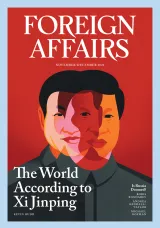編輯器
FA: Foreign Affairs問學者專家:美國應該承諾保衛台灣嗎?


作者/Author(s): Foreign Affairs
原文來源/Source: Foreign Affairs
日期/Date: November 15, 2022
主題/Key Topics : Defense, US-Taiwan Relations
摘要:
Foreign Affairs 《外交事務》發表了多篇關於中國入侵台灣的威脅、美中台關係以及台海穩定相關的文章。為了了解相關重要學者如何看待這個問題,Foreign Affairs 《外交事務》雜誌進行了一項調查,其內容是:「美國應公開官方態度以及政策,承諾在中國入侵時使用軍事力量保衛台灣及其直接控制的所有領土。」結果令人震驚:在 22 名受訪者中,有 10 名受訪者不同意或強烈不同意該聲明,而只有 6 名受訪者同意,其餘(6 名)保持中立。 以下是一些要點:
非常同意/同意:
- 保衛台灣事關美國在保護其盟友方面的信譽和責任問題。
- 面對習近平領導下的有恃無恐的中國,戰略模糊性可能無法持續。相反,戰略上的明確性將改變北京的戰略計算,並提高威懾力。
- 美國對台灣的防衛對全球穩定至關重要。 美國應推動和協助台灣加強防禦,並與地區盟友協調責任分擔。
非常不同意/不同意:
- 戰略模糊性為美國提供了更廣泛的選擇來應對台灣海峽的任何衝突,因此不需要進一步的承諾。
- 美國必須幫助台灣提高自衛能力,而不是做出承諾,因為未來的美國總統可能會違背承諾。 美國可以維持其在《台灣關係法》下的義務。
- 北京可能將戰略模糊的變化視為美國改變現狀的挑釁,而這會使美國地區盟友的立場複雜化。
- 美國應該有條件地承諾:如果台灣自己宣布獨立,美國將不保衛台灣,如果中國無端攻擊台灣,美國將保衛台灣。
Summary:
Foreign Affairs published various articles on the threat of Chinese invasion of Taiwan and U.S.-China-Taiwan relations concerning the stability of the Taiwan Strait. To understand how leading scholars see the issue, Foreign Affairs surveyed with the following statement “The United States should publicly adopt, as official policy, a pledge to use military force to defend Taiwan, and all the territories under its direct control, in the event of Chinese invasion.” The results are striking: out of 22 respondents, ten respondents disagreed or strongly disagreed with the statement, while only six respondents agreed, and the rest (six) remained neutral. Here are some key takeaways:
Strongly Agree/Agree:
Strongly Agree/Agree:
- The defense of Taiwan is a question of the U.S.’s credibility and responsibility in protecting its allies.
- Strategic ambiguity may not last against an emboldened China under Xi Jinping. Strategic clarity, in contrast, will shift Beijing’s strategic calculations and improve deterrence.
- The U.S. defense of Taiwan is crucial to global stability. The U.S. should push and assist Taiwan in fortifying its defenses and coordinate with regional allies in responsibility-sharing.
Strongly Disagree/Disagree:
- Strategic ambiguity gives the U.S. a wide array of options to respond to any conflict in the Taiwan strait, therefore, does not require a further pledge.
- The U.S. must help Taiwan to improve its self-defense capability and not make promises because future U.S. presidents may go against the pledge. The U.S. can maintain its obligations under the Taiwan Relations Act.
- Beijing may treat the change in strategic ambiguity as a provocation from the U.S. to change the status quo and will complicate the positions of the U.S.’s regional allies.
- The U.S. should go with conditional commitment: The U.S. will not defend Taiwan if it declares independence by itself and will defend Taiwan if it is attacked by China unprovoked.
